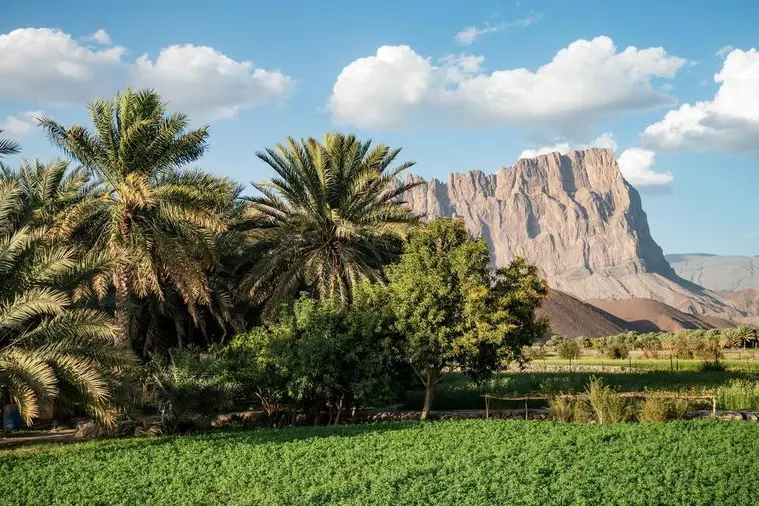PHOTO
Seawater farming, or saline agriculture, is a revolutionary technique that employs seawater for irrigation, allowing crop cultivation in arid regions. This technique addresses freshwater scarcity, food security, and environmental sustainability by growing salt-tolerant plants, known as halophytes, in a mix of seawater and freshwater. Crops like quinoa, barley and certain vegetables like kale and spinach, which are naturally resistant to high salinity, thrive under these conditions. Seawater farming also helps enhance soil quality and promotes sustainable agricultural methods in saline environments.
Key advancements in seawater farming include the Seawater Greenhouse project that replicates the hydrologic cycle by evaporating water from a saline source and then capturing it as freshwater through condensation. A 2004 pilot project in Oman with Sultan Qaboos University demonstrated its potential. In the UAE, the technology has enabled desert cultivation of fruits and vegetables using solar-powered desalination. Australia’s Sundrop Farms in Port Augusta combines hydroponics and aquaponics, improving soil fertility and reducing reliance on freshwater. The farm produces 15% of the country’s tomatoes, showcasing large-scale scalability and economic viability. Somaliland’s greenhouse makes arid land productive, while Jordan’s Sahara Forest Project combines seawater and solar power to cultivate crops and revegetate deserts.
In 2019, the Grow Dome project in Sohar, developed by the University of Sheffield in partnership with Sohar University, utilised advanced soilless farming techniques with solar-powered desalination to convert seawater into freshwater for agriculture. Tekmara, a startup in Sarasota, Florida, uses solar power to desalinate ocean water for crop irrigation, growing special crops like mushrooms for high-end restaurants and planning to expand to leafy greens.
In northwestern Italy, Nemo’s Garden is experimenting with underwater farming, growing herbs and other crops using condensed water from sunlight. Seawater Solutions is developing a 4,500-acre project in southern Spain’s Guadalquivir River delta, combining engineered salt marshes and saline agroecologies to restore ecosystems and produce various crops, including high-value vegetables, animal feed, and biofuels.
Oman, with its extensive coastline and arid climate, stands to benefit significantly from seawater farming. Integrating aquaculture with agriculture in coastal areas can foster a circular economy, with fish farming providing nutrient-rich water for crops. Using solar desalination technologies, like those in Sundrop Farms, the country can enable seawater irrigation while conserving freshwater. The nation can also build on previous projects for further advancement.
Omani entrepreneurs can develop eco-friendly construction materials such as biocomposites, bio-bricks, and green roofs and walls from salt-tolerant plants, targeting eco-conscious builders and developers. Educational farms offering tours and hands-on learning about seawater farming techniques can generate revenue and raise awareness. Businesses can include seawater farming in their efforts towards sustainability and social responsibility. For instance, a food and beverage company could partner with seawater farms to source salt-tolerant crops for new products, while agribusinesses can create sustainable animal feed from halophytes.
This approach aligns with Oman’s Vision 2040, which aims for sustainable development and reduced environmental impact. Seawater farming offers a promising solution to pressing challenges, enhancing food security, fostering economic growth, creating jobs, and contributing to global environmental sustainability, paving the way for a resilient future.
© Apex Press and Publishing Provided by SyndiGate Media Inc. (Syndigate.info).





















